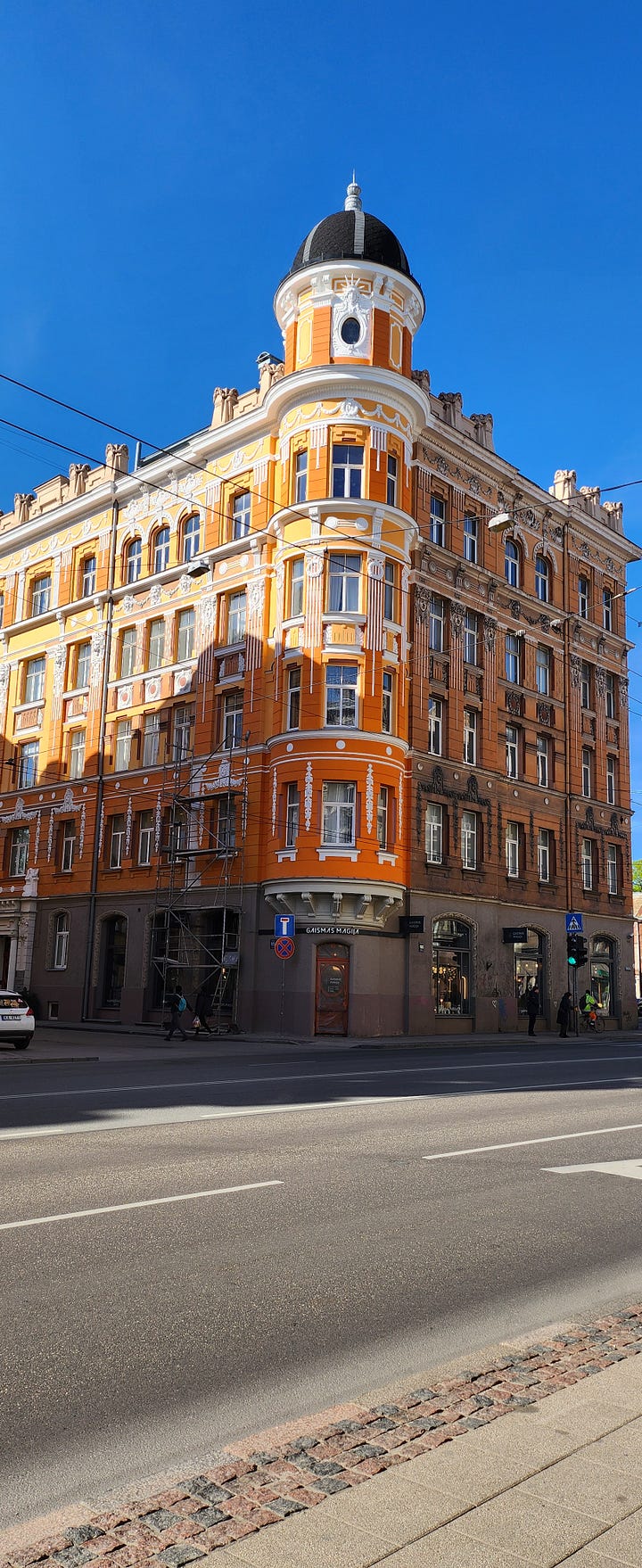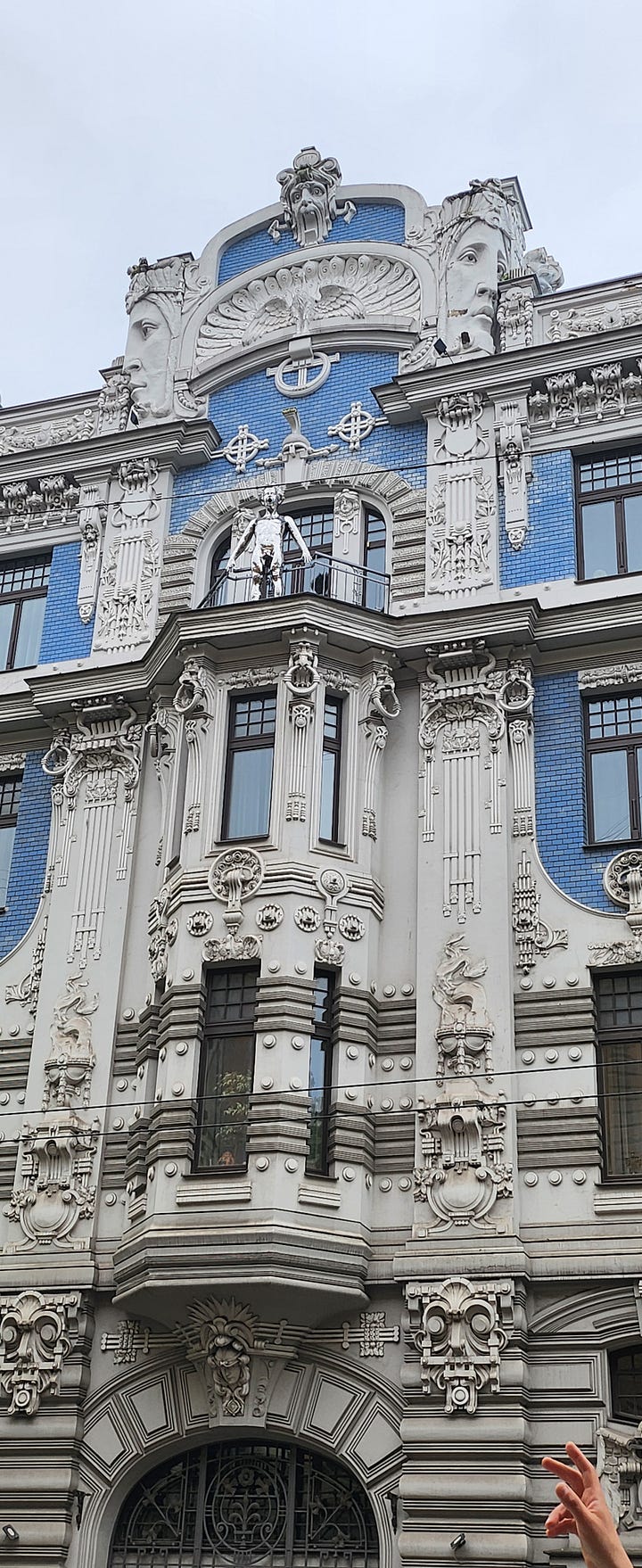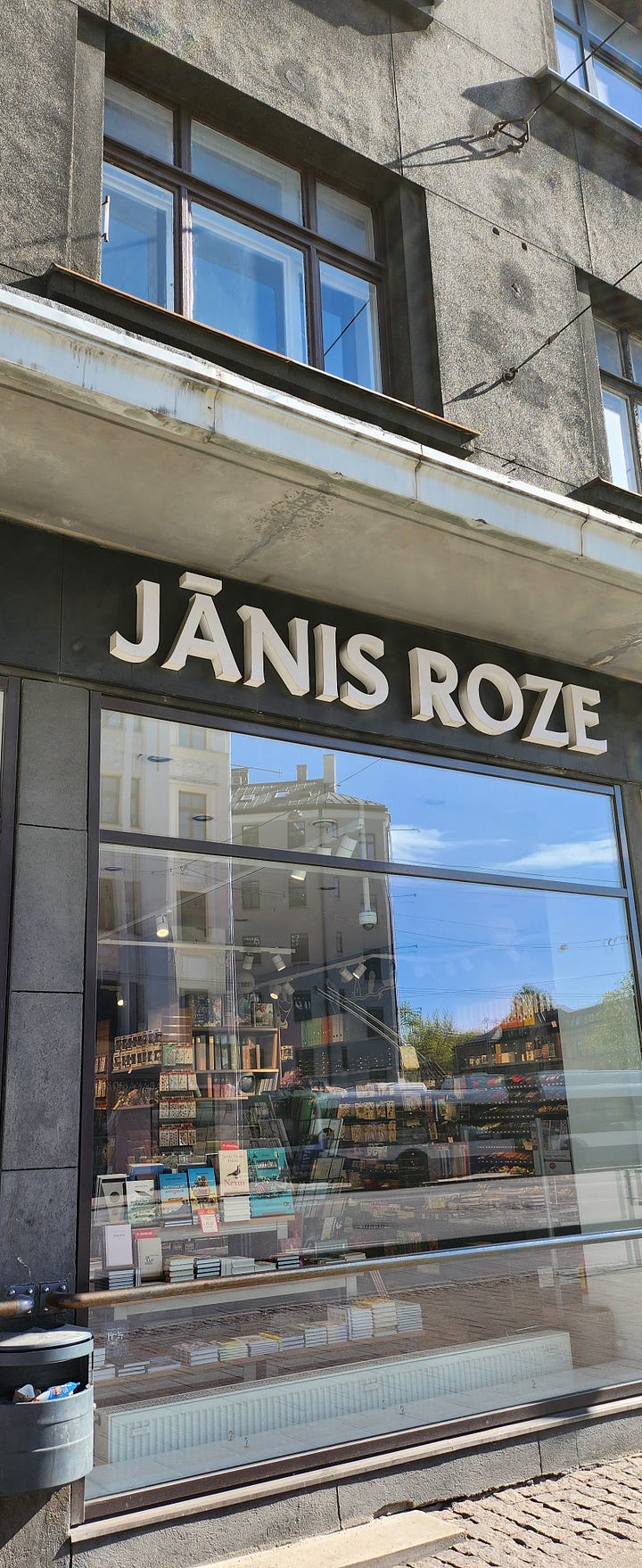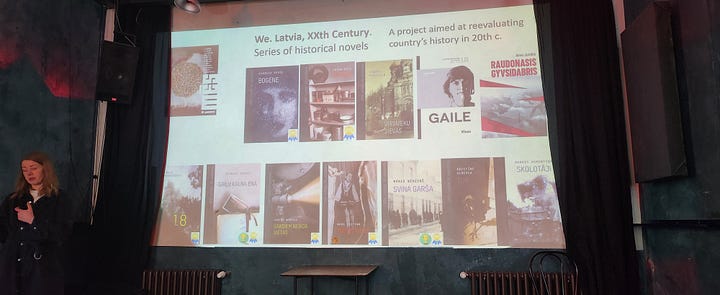700 Years of Oppression Created This Fascinating Book Culture
Inside a market with no indie bookshops, no Russian titles, and radical realism — and why it's more future-facing than you'd think.
A 1,000 copy print run counts as a bestseller. There are almost no independent bookshops. One-third of the population doesn't speak the national language.
Why Latvia? And Why It Matters
What can Latvia’s publishing market of 1,000-copy average print runs teach the rest of us? More than you'd think. After three days in Riga meeting authors and publishers, I discovered how Latvia's unique constraints — 700 years of occupation, linguistic splits, and cultural conservatism — have created a literary landscape that's both inspiring and instructive for anyone trying to understand how books actually get made and sold.
In an age of over-saturation, Latvia’s micro-scale market shows how scarcity can breed intimacy — and influence.
Since November 2024, I’ve been offered phenomenal opportunities to travel the world via publishing fellowships or to attend book trade fairs. I’ve been to Sharjah, UAE, Jaipur, India and now Riga, Latvia. I feel incredibly lucky. The idea of a fellowship is to introduce publishers to both the culture and the literary traditions of that country and educate them on how to translate books from that language (or languages) and any grants which might be available for that. This kind of cultural exchange doesn’t just benefit translators or agents. For indie authors and small presses, understanding foreign funding models or niche genres can open surprising doors.
🥐 The Cinnamon Swirl Epiphany (aka Day One in Riga)
I was lucky (or unlucky) enough to have a 6am flight to Riga, so I was able to explore the city before the other publishers arrived. On the plane I found that there was a 100% gluten free bakery (come on UK, when is it going to happen in Manchester?!) and when I arrived at my hotel, found that this bakery was parked right next door, which felt like a sign. (I tried a cinnamon swirl, cardamon pastry, and a triangular shaped bake, made with rice flour and nuts. I tried out my google translate for my orders, but everyone’s English is impeccable there, and most just laughed (kindly) at my attempts!)


The Introverts of Publishing
The first evening introduced me to publishers from Berlin, Paris, Barcelona, and Budapest at a hygge-style restaurant. 'Latvia is one of the world's most introverted nations,' our host announced. Perfect - publishing might be the world's most introverted profession. I often feel in these spaces that I’m a little too extroverted (I’d describe myself as an extroverted introvert most days!).
On the second day, we were given the history and the landscape of the country. I loved hearing about Midsummer night festival Ligo, and I’d love to return to see it – though I was told it is infamously difficult for tourists to locate, as Riga is usually empty. Locals go to the beaches to celebrate!


Understanding the Latvian Book Market in Numbers
Walking through Riga's bookshops (what few exist — there are almost no independents), I started to understand the numbers behind the narrative. With only 1/3 of Latvians speaking Latvian as their first language, bookshops are literally split in half: English titles for young readers, carefully curated Latvian works for cultural preservation, and a notable absence of Russian books due to strict government policies.
The math is staggering by UK standards. Latvia's 'Big Five' publishers average 1,000-copy print runs — what we'd consider a specialty edition. Most houses publish just 3-5 titles annually. Before Russian occupation in 1940, dozens of independent publishers thrived; by the Soviet era, only 5 state-controlled houses remained, their content heavily policed.
Scarcity = Intimacy: What Latvia Can Teach Bigger Markets
I could map Latvia's entire literary scene in three days — who the bestsellers are, what's trending, which authors everyone's talking about. Try explaining the UK market that succinctly. Impossible.
For self-publishers overwhelmed by the UK/US scale, Latvia proves that a smaller market doesn’t mean smaller impact. In fact, being able to map an entire literary scene in days might be an advantage — especially for those building niche readerships.
Quite rightly, they are proud of their cultural output – as the Latvian Literature team said, Latvia has essentially experienced ‘700 years of slavery’. To me, there was a sense of the country discovering itself. This explains why the genre of 'psychological realism' dominates - radical honesty about mental health delivered through literary prose. When you're rediscovering your cultural identity after 700 years of occupation, internal landscapes matter as much as external ones.
It was an incredibly well-organised trip, and I had been set up meetings by the team with authors and publishers. The pitches were fascinating but some revealed cultural divides.
What Counts as Transgressive?
Latvian authors pitched what they considered groundbreaking - like an auto-fiction novel about a fifties woman discovering her sexuality against a Catholic backdrop. In Latvia, this counts as revolutionary "coming of age." In the UK? A straight woman's earnest sexual diary (with a high literary tone) wouldn't make waves (unless it's Bridget Jones-level comedy, and can there really be more than one Jones?). Our revolutionary narratives centre young, LGBTQI+ voices coming of age - but in an almost post-Christian Britain, religion barely registers as something to rebel against. This was a powerful reminder that ‘radical’ is cultural. A story that feels overdone in London might feel brave in Riga — and vice versa. For any writer aiming to publish internationally, understanding that gap is vital.
Bars, Poets, and Baltic Noir
To end the fellowship, we went for drinks at the end of the fellowship at a lodge-style bar that felt a little like a hunting set for a possible horror movie set and is apparently the go to bar for poets! Between the Art Nouveau architecture, moody, hidden bars and coffee shops, Riga feels purpose-built for creative retreat. I know that if I get to return, the city will look quite different, or at least feel it, as more culture is created, year on year.
And in 2026, we hope to publish a Latvian noir novel… sorry to tease, but more on that soon, I promise!
And let me know in the comments: have you read any Latvian translations? And which international literary trends do you think deserve more attention?
What did I read on the plane and what did I think?
Psychological thriller ‘Snap’ by Belinda Bauer - can’t believe this is my first book by Bauer, because she’s an absolute master of her craft and the genre. I love a literary tone, and the twists were really well crafted. The characters felt deeply thought out, and I still have this image of a ‘beautiful’ knife in my head, encrusted with diamonds!
Last chance to join us in London…
We're just two weeks away from the publication of the distinctive debut novella GRQ (Get Rich Quick) by Hollywood director Steven Bernstein!
This is a whip-smart, emotionally searing novella that slices through the myth of the American dream with cinematic precision.
Set over just seven hours in a collapsing Los Angeles, GRQ follows Marlon—a grieving husband, drowning in debt—who’s desperate to keep his home and make his wife smile again. Enter a charismatic, morally ambiguous financial advisor, our omniscient narrator, who leads Marlon into a dangerous, high-stakes spiral.
“There’s a Marlon in all of us.”
— JP Maxwell, author and award-winning filmmaker
Tickets for the 6th of June, 7pm at Waterstones Trafalgar Square here.
Take care,
Isabelle x



